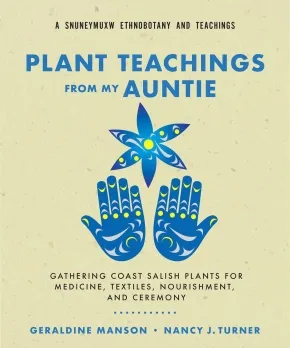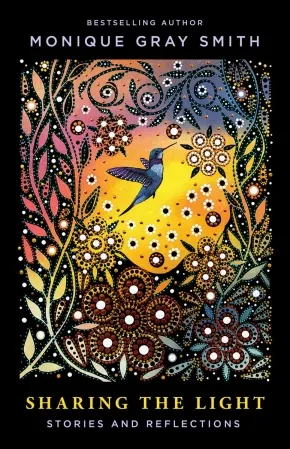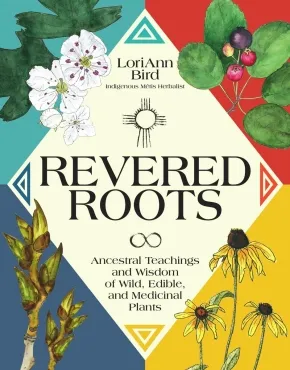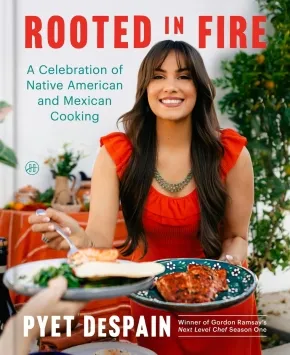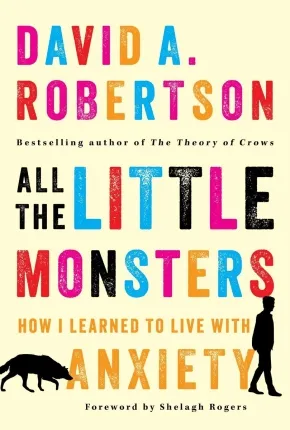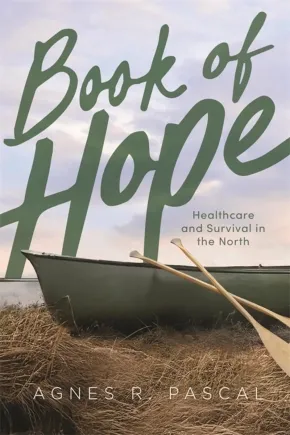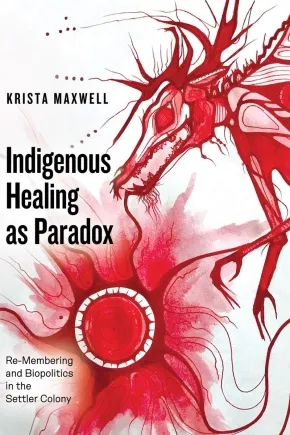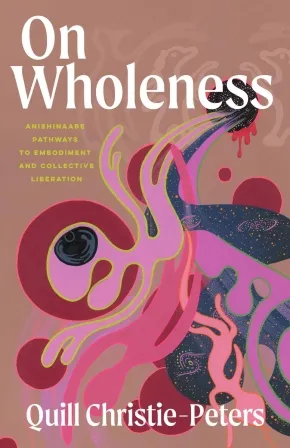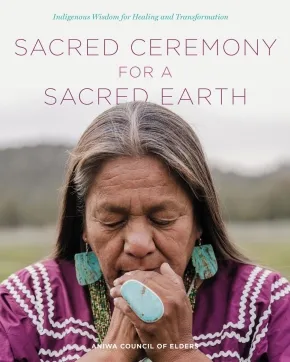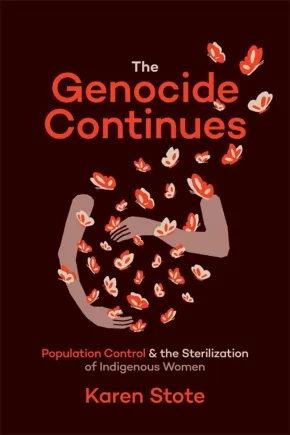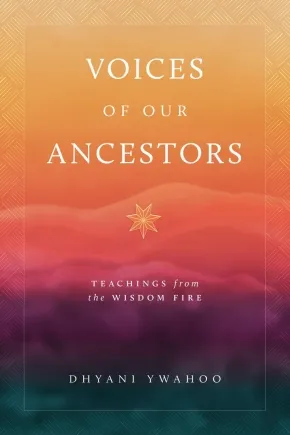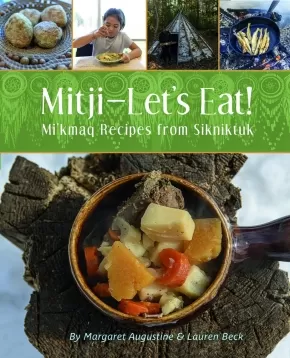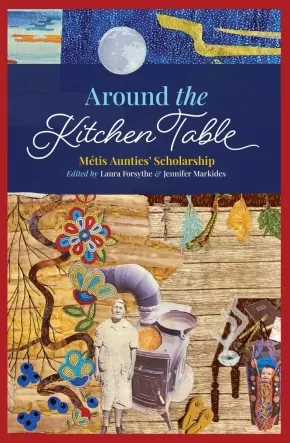
Health
1
-
15
of
82 Results;
Sort By
Go To
of 6
Plant Teachings from My Auntie: Gathering Coast Salish Plants for Medicine, Textiles, Nourishment, and Ceremony
$24.99
Format:
Paperback
Text Content Territories:
Indigenous Canadian; First Nations; Salish; Coast Salish; Snuneymuxw ;
Reading Level: N/A
ISBN / Barcode: 9781774060322
Synopsis:
Synopsis:
A Snuneymuxw ethnobotany guide grounded in Indigenous knowledge and deep ancestral connection to the land.
Plant Teachings from My Auntie: Gathering Coast Salish Plants for Medicine, Textiles, Nourishment, and Ceremony is a richly illustrated compendium of the many culturally significant wild foods and herbal remedies found in the traditional territory of the Snuneymuxw First Nation.
Each entry features plant descriptions complete with both their Hul'q'umi'num and botanical names, typical native habitat, and traditional uses. Particular attention is paid to the sacred Western Red Cedar or "tree of life." The book also offers a selection of healing recipes; tips for respectful, sustainable harvesting; ethical and responsible preparation techniques; and a guide to local gathering sites.
Snu'y'ulh refers to teachings handed down through generations. Snuneymuxw Elder and Knowledge Keeper Geraldine Manson, whose traditional name is C'tasi:a, draws on the sacred knowledge passed on to her by her "Auntie Ellen," Dr. Ellen White, also known as Kwulasulwut. Central to these learnings is the fundamental concept or protocol of honoring gifts from the land by gathering and preparing in ways that respect the history, culture, spirituality, and Indigenous knowledge associated with each species.
This powerful work is a rare treasure that will appeal to those seeking to foster greater cultural understanding and ecological responsibility while deepening their commitment to meaningful reconciliation.
Additional Information
96 pages | 9.00" x 7.50" | Paperback
Sharing the Light: Stories and Reflections
$26.99
Format:
Hardcover
Text Content Territories:
Indigenous Canadian; First Nations; Cree (Nehiyawak); Sioux; Lakota;
Reading Level: N/A
ISBN / Barcode: 9781487013547
Synopsis:
Synopsis:
Uplifting stories, vignettes, and reflections to inspire gratitude, love, joy, and hope in navigating life in a changing, challenging world.
This beautiful and welcoming book can be read cover to cover or used as a daily source of guidance, providing gentle wisdom that inspires and empowers. Through the lens of five transformative practices - gratitude, love, joy, happiness, and hope - bestselling author Monique Gray Smith weaves together short stories, poignant reflections, and thoughtful questions that invite readers to pause and reconnect with their inner light. And as an Indigenous author, Monique brings her cultural wisdom and unique perspective to each offering.
Sharing the Light is a powerful reminder that when we embrace our light and share it with the world, that energy not only transforms us but ripples out to uplift everyone around us.
Additional Information
208 pages | 5.00" x 7.75" | Hardcover
FLASH SALE! Revered Roots: Ancestral Teachings and Wisdom of Wild, Edible, and Medicinal Plants
$24.75 $32.99
Format:
Hardcover
Text Content Territories:
Indigenous Canadian; Métis;
Reading Level: N/A
ISBN / Barcode: 9780760393253
Synopsis:
“Revered Roots is a profound journey that gracefully and colorfully intertwines Indigenous wisdom with practical plant knowledge, offering a guide to reconnect with Nature’s green gifts. LoriAnn's heartfelt teachings inspire readers to honor and deepen their sacred relationship with the Earth.”—Dr. Kelly Ablard, Founder and CEO, Airmid Institute
Synopsis:
With Indigenous Métis herbalist LoriAnn Bird as your guide, connect with the ancestral wisdom of over 90 wild edible and medicinal plants from across North America.
A purposeful and powerful reference to the lessons, nourishment, healing, and history of our “plant teachers,” Revered Roots shares guidance on exploring, gathering, and reclaiming these long-revered plants as food and medicine. Separated into two sections, LoriAnn first reveals her own journey to understanding and respecting our plant elders. She offers teachings and lessons about remembering our relationship to the plants around us and our responsibility to the earth that sustains us.
The second part of the book is filled with insightful illustrated plant profiles detailing the identification, uses, and Indigenous folklore of some of the continent’s most treasured ancestral plants. Included are edible and medicinal bark, berries, and buds from trees and shrubs, as well as foliage, flowers, and fronds from herbs, “weeds,” and wildflowers; some native to the continent, others introduced generations ago.
Learn about the gifts our Rooted Nation of plants has to offer, including:
- Evergreen tips from spruces, pines, and firs
- Hawthorn berries, leaves, and flowers
- Plantain seeds and foliage
- Oswego tea leaves and blooms
- Slippery elm bark
- Motherwort flowers, stems, and leaves
- Black cohosh roots and rhizomes
- Marshmallow root
- Cottonwood buds and bark
- Plus dozens more
Reclaiming our natural rhythms and connections to the earth we walk on is essential to our health and well-being, both as individuals and as a community. One simple way to do that is by appreciating, respecting, and seeking to understand the plants around us.
Reviews
“With elegant reverence, LoriAnn Bird weaves connections among ancestral herbalist teachings from several lineages. She invites us into our own personal journey with plant medicine, giving us lessons on how to respect and honor the power of plants and their human knowledge keepers. She carefully and lovingly attributes each piece of teaching to its source. This book is a powerful legacy that we need more than ever at this time of healing and reconciliation. May its words fly into the world and land softly in the hearts of all who need them.”—Lori Weidenhammer, author of Victory Gardens for Bees: A DIY Guide to Saving the Bees
“Revered Roots is truly an essential work of art that imparts the sacredness of each plant, in each harvesting step and in the interspecies relationships with all of life. The authentic and grounded nature of LoriAnn Bird comes through the pages to connect us with a sense of belonging and reverence.”—Katrina Blair, founder of Turtle Lake Refuge; author of The Wild Wisdom of Weeds
“LoriAnn Bird, in her book Revered Roots, creates a beautiful story about our plant relatives with our history woven between the leaves of each page. She highlights each being and allows them to tell their story, including who they are, their benefits, uses, ways to eat, look-alikes, and what makes them unique. It's like looking at an old family album and finally knowing who each person is and what their spirit has to offer the world. The book, complete with information about our relatives, wrapped its warm arms around me as I nestled in to read each page, excited to learn more about family. LoriAnn’s voice provides a continuous honoring of our ancestors, our brilliance, and our resilience.”—Jenna Jasek, Shuswap (Kenpesq't) Band member, Director of Indigenous Learning, The Outdoor Learning School
“Revered Roots is a profound journey that gracefully and colorfully intertwines Indigenous wisdom with practical plant knowledge, offering a guide to reconnect with Nature’s green gifts. LoriAnn's heartfelt teachings inspire readers to honor and deepen their sacred relationship with the Earth.”—Dr. Kelly Ablard, Founder and CEO, Airmid Institute
“LoriAnn Bird weaves stories of plants into a tapestry of vivid imagery and teachings, allowing us to experience earth medicine in a way we never have before. Like a family gathered around the table exchanging stories of cherished ones, Lori Ann’s plant musings draw us into an intimate connection with our More-Than-Human Kin. From a small moment in a back alley in East Vancouver to hundreds of years of history from around the world, Revered Roots feels like an equal blend of encyclopedia, history book, and love letter. Get to know plants in a truly profound way through the words of a master storyteller, sister, friend, mother, and plant protector.”—Stephanie Rose, founder of Garden Therapy; author of Garden Alchemy and The Regenerative Garden
“This is a beautiful book on every level; the gorgeous drawings and painting of plants, the photography and images throughout, but also the words and the feelings on each page. Intensely moving and remarkably practical, deeply personal and filled with worldly wisdom, this book offers the reader a glimpse into a whole new way of seeing the nature. With a plant centered focus, through a biophilia lens, the author invites us to re-evaluate and re-vision our own relationships with plants and the natural world. This book is destined to be a classic.”—Chanchal Cabrera MSc, FNIMH, Medical Herbalist; Horticulture Therapist; author of Holistic Cancer Care
“LoriAnn has put a lifetime of collected knowledge into a work that connects people to plants in ways both honorable and honest. Revered Roots extols both the practical and sacred uses of the plants we see around us, while also nurturing our respect for our More-Than-Human Kin and our responsibility to the greater world. It has been a pleasure to be a teacher and herbal mentor to LoriAnn for many years.”—Don Ollsin, Master Herbalist; Conscious Spiritual Elder, Alchemy of Aging; author of Pathways to Healing
Additional Information
240 pages | 8.00" x 9.55" | Hardcover
FLASH SALE! Rooted in Fire: A Celebration of Native American and Mexican Cooking
$36.63 $43.50
Format:
Hardcover
Reading Level: N/A
ISBN / Barcode: 9780063304079
Synopsis:
Synopsis:
Next Level Chef winner Pyet De Spain celebrates her Mexican and Native American heritage in this collection of mouthwatering recipes, a vibrant fusion that ties us to the land and to one another.
Star chef Pyet DeSpain rose to prominence as the first winner of Gordon Ramsey’s Fox television show Next Level Chef. Now, in her debut cookbook, she shares the joy of cooking fueled by her burning passion for Native American and Mexican American cuisine. Rooted in Fire: A Celebration of Native American and Mexican Cooking is a tribute to her dual heritage—a gorgeously crafted celebration of the diversity of food and the stories, traditions, culture, and profound philosophies of Indigenous people that season each meal.
Pyet shows you how to incorporate a delicious range of key ingredients—from venison, dandelion greens, to sunchokes, bison, and native berries—into more than sixty fusion dishes. Family and friends will be excited to gather around the table to enjoy sweet and savory food such as:
- Three Sisters Salad
- Bison and Sweet Corn Soup
- Fry Bread
- Mexican Chocolate & Mezcal Cake
- Corn Silk and Honey Tea
- Wojapi BBQ Sauce
In addition to her inventive and palate pleasing recipes, Pyet invites home cooks to honor the seasons on our beautiful Earth and connect with essential foodways. “This is more than just a cookbook,” Pyet writes. “It’s giving a voice to Indigenous people, while also highlighting the fusion of my two cultures with fire and purpose.”
Reviews
"Pyet's talent is evident in every recipe in this book. The way she weaves her heritage into her dishes is extraordinary and I've seen it every day since the first time I tasted her work on Next Level Chef. Trust me, you're in for an absolute treat." — Gordon Ramsay
Pyet’s Rooted in Fire beautifully honors her Prairie Band of Potawatomi and Mexican heritage through food storytelling that is both personal and powerful. Her voice is heartfelt, her vision and dedication are clear, and her talent within the Indigenous food movement is undeniable. I’m so proud to see her shining as a modern-day Indigenous food warrior—this book marks an important chapter in her growing legacy." — Sean Sherman, Founder of The Sioux Chef/NATIFS.org and Author of The Sioux Chef’s Indigenous Kitchen and Turtle Island
Additional Information
288 pages | 7.38" x 9.12" | 128 four color food photographs | Hardcover
All the Little Monsters: How I Learned to Live with Anxiety
$25.99
Format:
Paperback
Text Content Territories:
Indigenous Canadian; First Nations; Cree (Nehiyawak); Swampy Cree ; Norway House Cree Nation;
Reading Level: N/A
ISBN / Barcode: 9781443472401
Synopsis:
Synopsis:
With humour, warmth and heartbreaking honesty, award-winning author David A. Roberston explores the struggles and small victories of living with chronic anxiety and depression, and shares his hard-earned wisdom in the hope of making other people’s mental health journeys a little less lonely
From the outside, David A. Robertson looks as if he has it all together—a loving family, a successful career as an author, and a platform to promote Indigenous perspectives, cultures and concerns. But what we see on the outside rarely reveals what is happening inside. Robertson lives with “little monsters”: chronic, debilitating health anxiety and panic attacks accompanied, at times, by depression. During the worst periods, he finds getting out of bed to walk down the hall an insurmountable task. During the better times, he wrestles with the compulsion to scan his body for that sure sign of a dire health crisis.
In All the Little Monsters, Robertson reveals what it’s like to live inside his mind and his body and describes the toll his mental health challenges have taken on him and his family, and how he has learned to put one foot in front of the other as well as to get back up when he stumbles. He also writes about the tools that have helped him carry on, including community, therapy, medication and the simple question he asks himself on repeat: what if everything will be okay?
In candidly sharing his personal story and showing that he can be well even if he can’t be “cured,” Robertson hopes to help others on their own mental health journeys.
Additional Information
272 pages | 6.00" x 9.00" | Paperback
Book of Hope: Healthcare and Survival in the North
$29.00
Format:
Paperback
Text Content Territories:
Indigenous Canadian;
ISBN / Barcode: 9781773637365
Synopsis:
Synopsis:
Firsthand narratives from Northern and Indigenous cancer survivors and caregivers offer compassionate advice and insightful analysis about healthcare in rural northern communities.
A cancer diagnosis can be life changing for anyone, bringing new physical and emotional realities, changed relationships, and often frustration when dealing with healthcare systems. But living north of sixty means dealing with a higher level of healthcare inequity. Agnes Pascal compiles firsthand narratives from Northern and Indigenous cancer survivors and caregivers that illuminate the unique challenges of healthcare accessibility in the North.
In this rare volume, more than thirty voices offer compassionate advice and insightful analysis born from experience. With courage and dignity, they discuss fear, grief, and death; the logistics of medical travel for treatment; Indigenous and Western medicine; structural determinants of health, including industrial pollution and environmental racism; and the impacts of residential schools and “Indian hospitals” on northern communities. In these pages people share that hope comes from building healing communities.
This book is for people with cancer and their caregivers; health policy makers and advocates; scholars and practitioners of healthcare, Indigenous governance, or environmental racism; and anyone interested grassroots, community-based peer support.
Reviews
“This book is a chorus of bravery, one every health practitioner should read so they can understand that as devastating as a cancer diagnosis is to the patient, it also affects the patient’s family, extended family and community. Thankfully, there is hope once diagnosed and the stories from these survivors is a testimony to the power of compassion, technology, teamwork, follow up and after care. I am in awe of the humility, courage, insight and gratitude in every story here. Mahsi cho.”- Richard Van Camp, author of Gather: Richard Van Camp on the Joy of Storytelling
“Prioritizing the voices of northern and Indigenous cancer patients, especially those from small communities, is critical for ensuring positive change within the Northwest Territories healthcare system. The inner strength of patients and the insights they share, are a gift to us all. ”- Stephanie Irlbacher-Fox, scientific director at Hotıì ts’eeda
Additional Information
192 pages | 6.00" x 9.00" | 30 Contributor Photos | Paperback
Indigenous Healing as Paradox: Re-Membering and Biopolitics in the Settler Colony
$29.99
Format:
Paperback
Text Content Territories:
Indigenous Canadian;
Reading Level: N/A
ISBN / Barcode: 9781772125740
Synopsis:
Synopsis:
Indigenous healing is a paradox in the liberal settler colony where efforts to foster well-being can simultaneously undermine distinct Indigenous societies. This book examines the prominence of “Indigenous healing” in Canadian public discourse through a historical and ethnographic lens. It focuses on late twentieth-century Indigenous social histories in Treaty 3 territory and cities in northern and southern Ontario to show practices of re-membering—drawing on traditional ways of being and knowing for social repair and collective rejuvenation—against the backdrop of the social dismemberment of Indigenous Peoples. Expansion of re-membering is often enabled by tactical engagements with the settler state which have fuelled an Indigenized biopolitics from below. Maxwell offers an analysis of the possibilities, tensions, and risks inherent to these biopolitical tactics. Informed by Indigenous feminist scholarship that emphasizes relationality, care, and the everyday, as well as the intimate workings of settler colonialism, this book aims to enrich critical conversations about reconciliation and resurgence politics and challenge their perceived dichotomy.
Reviews
"Indigenous Healing as Paradox is a sophisticated study that explains how Indigenous encounters with settler colonial healthcare systems that could potentially improve their lives also threaten to destroy their collective wellbeing. Beautifully written and tightly focused, it follows Indigenous biopolitical actors navigating this paradox through tactical engagements with the settler state."- Maureen Lux, author of Separate Beds: A History of Indian Hospitals in Canada
"Indigenous Healing as Paradox is an important contribution to the historiography of Indigenous health and social wellbeing. Maxwell offers a critical lens on the perils of adopting reconciliation and healing discourses that focus on historic injustices and the individual in need of treatment at the expense of ongoing systemic issues." - Kim Anderson, University of Guelph
"Maxwell is attentive to the complexities of Indigenous people's responses to the insidious violence of settler colonial intrusion and governance. Indigenous Healing as Paradox is an important book that takes an original stance." - Alexandra Widmer, York University
Educator Information
Table of Contents
- Preface
- Acknowledgements
- Artist Statement
- Introduction: Indigenous Re-Membering and Biopolitics in the Liberal Settler Colony
- Chapter One: Giizhiiganang and Anishinaabe Re-Membering, 1965–1980
- Chapter Two: Re-Membering and Biopolitics in Urban Ontario, 1973–1980s
- Chapter Three: “Family Violence Is Weakening Our Nations”: Indigenous Women, Political Dismemberment, and Family Healing, 1972–1990
- Chapter Four: Biopolitical Tactics under Neoliberal Settler Colonialism: Healing as Public Discourse, 1990–2015
- Conclusion: Towards an Indigenized Politics of Life
- Appendix: Methods and Sources
- Notes
- References
- Index
Additional Information
208 pages | 6.00" x 9.00" | Paperback
On Wholeness: Anishinaabe Pathways to Embodiment and Collective Liberation
$26.99
Format:
Paperback
Text Content Territories:
Indigenous Canadian; First Nations; Anishinaabeg; Ojibway; Saulteaux; Lac des Mille Lacs (Nizaatikoong);
Reading Level: N/A
ISBN / Barcode: 9781487013257
Synopsis:
Synopsis:
A brilliant exploration of the body as a site of settler colonial impact, centring embodied wholeness as a pathway to our collective liberation.
This fierce and enlightening book reimagines the way we understand settler colonialism-through the body itself. Anishinaabeg visual artist Quill Christie-Peters takes us on a journey that begins before birth, in a realm where ancestors and spirits swirl like smoke in the great beyond. But once we enter the world, our bodies are shaped and scarred by colonial forces.
In poetic and raw storytelling, Quill shares her own experiences of gendered violence and her father's survival of residential school, revealing how colonialism disconnects us from ourselves. Yet, through an Anishinaabeg lens, the body is more than just flesh-it extends to ancestors, homelands, spirit relations, and animal kin.
Through reflections on childbirth, parenting, creative practice, and expansive responsibility as pathways to wholeness, Quill explores how reconnecting with the body can be an act of resistance and healing. She shows that wholeness-despite pain and displacement-is not just possible but essential for liberation, not only for Indigenous people but for all of us.
Additional Information
288 pages | 5.50" x 8.50" | Paperback
Sacred Ceremony for a Sacred Earth: Indigenous Wisdom for Healing and Transformation
$52.99
Format:
Hardcover
Text Content Territories:
Indigenous;
Reading Level: N/A
ISBN / Barcode: 9780760392126
Synopsis:
Synopsis:
For the first time, over a dozen respected Indigenous elders from around the world have united to share their timeless wisdom beyond their lands and lineages.
Aniwa’s Council of Elders includes some of the globe’s most renowned Indigenous Wisdom Keepers. In a time fraught with ecological, social, political, and mental health crises, they share a mission to unite people of all races, colors, and creeds to promote healing and a deeper reciprocal relationship with our planet. Sacred Ceremony for a Sacred Earth brings together their profound teachings, stories, sacred ceremonies, and healing practices, amplifying the voices of Indigenous healers from diverse traditions.
In their worldview, we are all children of Mother Earth, destined to return to her embrace. This extraordinary book serves as a guiding light, beckoning humanity back to ancestral wisdom and restoring forgotten bonds with nature and self through ceremonies and practices.
Embark on a journey of self-discovery, unveiling the purpose of your soul and reclaiming your intrinsic relationship with Mother Earth, through ancient practices such as:
- Use of Feathers to Bless Yourself and Relieve Pain
- Pagamento for Trees
- Hopi Message of Comfort to Say Good-Bye to Loved Ones Who Have Passed
- Practices for Conscious Conception
- Create a Spiritual House for Your Inner Child
- The Feagaiga (Sacred Promise or Covenant) with Mother Earth
- Connect with Your Ancestors
Sacred Ceremony for a Sacred Earth calls upon us to awaken and rekindle the flame of connection with our roots and the natural world. Let the eternal wisdom of elders guide you toward healing, growth, and a profound reconnection with nature.
Reviews
"An essential guide to begin understanding culture, nature, and yourself."—Oona Chaplin, actress
"Beautifully and profusely illustrated throughout with full color photography of indigenous people, rituals, events, Sacred Ceremony for a Sacred Earth is informative, fascinating, insightful, and unreservedly recommended."—Midwest Book Review
Educator Information
Discover rituals and wisdom from Indigenous communities across the globe that, until now, have only been passed down orally and taught within closed circles.
Additional Information
224 pages | 8.30" x 10.25" | Hardcover
The Genocide Continues: Population Control and the Sterilization of Indigenous Women
$36.00
Format:
Paperback
Text Content Territories:
Indigenous Canadian;
Reading Level: N/A
ISBN / Barcode: 9781773637693
Synopsis:
Synopsis:
Indigenous Peoples in Canada have experienced coerced sterilization under eugenics legislation since the 1930s, and the violence has never stopped, even though eugenics fell into disrepute. In The Genocide Continues, Karen Stote traces the historical, political, economic and policy context informing the coerced sterilization of Indigenous women from 1970 onward. She shows how a powerful idea paved the way for the expanded violations of Indigenous People’s bodies and futures. That idea was population control — a concern with who occupied land and how resources were distributed — and it was a central thread guiding public health interventions from eugenics to family planning.
The Genocide Continues offers new insights to show how federal, provincial and corporate activities intersected to criminalize and regulate Indigenous reproduction. Saskatchewan, which first established family planning policies in the 1970s and is now the province with the highest number of Indigenous women coming forward with experiences of coerced sterilization, is Stote’s case study to demonstrate why family planning activities consistently targeted Indigenous women.
Stote weaves compelling archival evidence with principled storytelling to connect violence against Indigenous bodies to violence against Indigenous lands. Unless and until colonialism, extractivism and dispossession are addressed, a genocide against Indigenous peoples will continue.
Reviews
"Karen Stote has skillfully woven archival documents with evidence in policy, philanthropy, and medicine to show the repulsive side of Canada’s health care system as an assimilation tool. This book recounts the reasons why forced and coercive sterilization of Indigenous Peoples happened and is still happening." - Karen Lawford, Queen's University
Additional Information
288 pages | 6" x 9" | Paperback
Voices of Our Ancestors: Teachings from the Wisdom Fire
$33.95
Format:
Paperback
Text Content Territories:
Indigenous American; Native American; Cherokee; Eastern Band of Cherokee;
Reading Level: N/A
ISBN / Barcode: 9781645473046
Synopsis:
Synopsis:
Follow the beauty way to generate happiness and good relationships, fulfill your life purpose, manifest peace and abundance, and renew the planet.
Dhyani Ywahoo’s powerful, prophetic, and compassionate voice returns in this new expanded edition of the book that’s sold over 90K copies.
This beloved book has resonated with thousands of spiritual explorers and other readers wishing to ground their activities in harmony and well-being. In this expanded edition, Dhyani Ywahoo continues to be a guiding source of wisdom for all who walk the Beauty Way. As the twenty-seventh generation to carry the Ywahoo lineage of the Eastern Tsalagi/Cherokee Nation, she shares the precious oral teachings of her people that remain timely, powerful, and accessible.
Weaving together Buddhist and Native American traditions, Voices of Our Ancestors offers practical ways of transforming obstacles into happiness and good relationships, fulfilling our life purpose, manifesting peace and abundance, and renewing the planet. The Tsalagi worldview teaches us to infuse each moment with the three fundamental principles of intention, compassion, and doing good. We have the opportunity to let go of fear and aggression and begin to live a life of enlightened consciousness, with tools like:
- Meditations;
- Healing rituals;
- Instructions for working with crystals; and
- Teachings on how to practice generosity and harmony.
Our journey is enriched by Dhyani Ywahoo’s new reflections on the expansion of Native American communities in the United States and how they have cooperated to bring Indigenous voices into larger conversations about conflict resolution, the climate crisis, and the need for inclusion of underrepresented groups and individuals. With a voice that is powerful, prophetic, and compassionate, Dhyani Ywahoo calls on us to become peacekeepers in our hearts and in the world.
Reviews
“Venerable Dhyani Ywahoo embodies wisdom of the Native and Tibetan traditions. Hers is a lifetime spent generously sharing these sacred teachings with students all over the world. I celebrate this new edition of her book, which will hold these precious methods to walk in this world with wisdom and compassion now and for future generations.”—Lama Konchok Sonam, spiritual director of Drikung Meditation Center
“These wisdom teachings are profoundly life-changing for spiritual growth no matter your tradition. Venerable Dhyani Ywahoo is an exceptional spiritual leader and teacher, having forged her own way through traditional Cherokee and Vajrayana teachings. She compassionately embraces her students with her wisdom, offering unique and significant insights. Voices of Our Ancestors is a timeless work and as such it lends support and inspiration continually.”—Shan Watters, artist and author of Mothering the Divine
Additional Information
352 pages | 6.00" x 8.99" | Paperback
Wilful Neglect: The Federal Response to Tuberculosis among First Nations, 1867–1945
$34.95
Format:
Paperback
Text Content Territories:
Indigenous Canadian; First Nations;
ISBN / Barcode: 9780228026204
Synopsis:
Synopsis:
How colonial medical policies are linked to health inequities that persist in First Nations a century later.
Tuberculosis, once a leading cause of death in Europe and North America, was understood to be preventable and even curable by the early twentieth century. Yet despite growing knowledge about the disease and interventions that would slow its spread, tuberculosis deaths among First Nations in Canada remained staggeringly high. Government policies rooted in colonialism exacerbated a tuberculosis epidemic. Wilful Neglect explores the devastating consequences of the Department of Indian Affairs’ failed responses to tuberculosis among First Nations in Canada from 1867 to 1945. Even when medical treatment for tuberculosis became widely available, and despite the codification of the federal government’s obligations in treaties and other legislation, the basic health needs of First Nations remained unmet. The government instead prioritized an assimilationist agenda, including the placement of Indigenous children in residential schools, which became hotbeds for the spread of the infection. Drawing on the department’s own annual reports, memoranda, and budgets over more than seventy years, Jane Thomas traces key moments, decisions, and individuals involved in shaping federal health policy, laying bare the repercusions of racializing a disease. Health policies developed by colonial governments without the involvement of First Nations have always failed. Wilful Neglect demonstrates a direct link between the federal government’s historical health policies and the disparities that continue into the present.
Reviews
“Wilful Neglect is a compelling national case study of the federal government’s complicity in the deaths of thousands of First Nations individuals during the tuberculosis epidemics of the nineteenth and twentieth centuries.” - Hugh Shewell, Carleton University
Educator Information
Table of Contents
Figures and Table • ix
Foreword • xi
Shawn Batise
Acknowledgments • xv
Abbreviations • xxi
Introduction • 3
1 “The promises we have to make to you are not for today only but for tomorrow”: Setting Precedent Through Legislation, Treaties, and Government Practice, 1867–1883 • 25
2 “There is a ready compliance on their part with regulations”: Assimilation at All Costs Through Civilizing, Christianizing, and Sanitizing the Infected, 1884–1903 • 47
3 “We are giving the best attention we can to the medical needs of the Indians”: Dr Peter Bryce’s anti-TB Crusade, 1904–1913 • 70
4 “We have been trying to get off rather cheaply”: Treatment of “Indian Tuberculosis,” 1914–1928 • 109
5 “The activities of the medical branch cannot fairly be judged by the visible results”: Vaccine Trials, Pilot Projects, and a New Medical Services Branch, 1929–1937 • 139
6 “A comprehensive and progressive program is long overdue”: New Funding and Treatment Facilities, 1938–1945 • 172
Conclusion: If Preventable, Why Not Prevented? • 193
Afterword • 199
Appendix A: Individuals Responsible for the Department of Indian Affairs (1867–1945) • 202
Appendix B: Department of Indian Affairs Medical Expenses (1868–1904) • 206
Appendix C: Timeline of United Church Mission Hospitals Opened in Canada • 208
Appendix D: Canadian Tuberculosis Association Expenses (1902–1945) • 210
Appendix E: Department of Indian Affairs Medical Expenses (1905–1945) • 212
Notes • 217
Bibliography • 271
Index • 289
Additional Information
318 pages | 6" x 9" | Paperback
FLASH SALE! Mitji- Let's Eat!: Mi'kmaq Recipes from Sikniktuk
$21.94 $29.95
Artists:
Format:
Paperback
Text Content Territories:
Indigenous Canadian; First Nations; Mi'kmaq;
Reading Level: N/A
ISBN / Barcode: 9781774712276
Synopsis:
Synopsis:
An intergenerational source of wisdom and knowledge, Mitji combines a cultural history of Mi'kmaw cuisine with a practical cookbook.
The welcome call of "Mitji" can be heard by Mi'kmaw children, hungry workers, family, and friends when dinner is ready. This book, too, is an invitation to celebrate and practice Mi'kmaq foodways: the recipes passed down from one generation to the next; the way traditional foods and medicines are gathered, hunted, and cooked; and the lived experience of ancestors and Elders about how to nourish the spirit and body through Mi'kmaw culture and knowledge.
Mitji – Let's Eat! Mi'kmaq Recipes from Sikniktuk offers over 30 traditional and popular Mi'kmaq recipes, arranged seasonally — like Fish Cakes and Eel Stew in spring; Blueberry "Poor Man's Cake" and Stuffed Salmon in summer; Swiss Steak with Moose Meat and Apple Pie in fall; and Molasses Cake and Wiusey Petaqn in winter.
Each recipe is contextualized with its origins, contributor information, food stories, and detailed preparation instructions, and throughout the book are short essays on Mi'kmaw cuisine, drawing a picture of how Mi'kmaq foodways were influenced by colonization, on the one hand, and how food became and remains a significant vehicle of resistance, on the other. Whether a novice or well-seasoned cook, Mitji is a feast for the reader: a bountiful introduction to, and celebration of, Mi'kmaw cuisine.
Educator Information
Subjects & Curriculum Links: Indigenous Cooking, Seasons, Indigenous History, Mi'kmaw Culture and Cuisine
This book has received the Authentic Indigenous Text label because of the Indigenous contributions to this work. It is up to readers to determine if it's an authentic resource for their purposes.
Additional Information
240 pages | 7.50" x 9.25" | Photos by Patricia Bourque, 50+ Coloured Images
Around the Kitchen Table: Métis Aunties' Scholarship
$27.95
Editors:
Format:
Paperback
Text Content Territories:
Indigenous Canadian; Métis;
Reading Level: N/A
ISBN / Barcode: 9781772840735
Synopsis:
Synopsis:
Honouring the scholarship of Métis matriarchs
While surveying the field of Indigenous studies, Laura Forsythe and Jennifer Markides recognized a critical need for not only a Métis-focused volume, but one focused on the contributions of Métis women. To address this need, they brought together work by new and established scholars, artists, storytellers, and community leaders that reflects the diversity of research created by Métis women as it is lived, considered, conceptualized, and re-imagined.
With writing by Emma LaRocque and other pioneers of Métis studies, Around the Kitchen Table looks beyond the patriarchy to document and celebrate the scholarship of Métis women. Focusing on experiences in post-secondary environments, this collection necessarily traverses a range of methodologies. Spanning disciplines of social work, education, history, health care, urban studies, sociology, archaeology, and governance, contributors bring their own stories to explorations of spirituality, material culture, colonialism, land-based education, sexuality, language, and representation. The result is an expansive, heartfelt, and accessible "community of Métis thought," as articulated by Markides.
Reverent and revelatory, this collection centres the strong aunties and grandmothers who have shaped Métis communities, culture, and identities with teachings shared in classrooms, auditoriums, and around the kitchen table.
Reviews
"Inspiring, healing, and future-facing, this long overdue book gives us valuable new insights into the histories and identities of Métis people." — Kim Anderson
"Around the Kitchen Table is an exciting and thought-provoking contribution to the fields of Métis Studies and Indigenous feminism. Reading this book is like sitting down to visit with a strong cup of tea and your favourite aunties. It will inspire readers to think about matriarchy in new and exciting ways, teaching us what it means to be Métis women, good relatives, and innovative scholars." — Cheryl Troupe
Educator Information
Other contributors: Jennifer Adese, Christi Belcourt, Hannah Bouvier, Rita Bouvier, Vicki Bouvier, Robline Davey, Leah Marie Dorion, Marilyn Dumont, Nicki Ferland, Chantal Fiola, Lucy Fowler, Chelsea Gabel, Janice Cindy Gaudet, Emily Haines, Shalene Jobin, Emma LaRocque, Amanda LaVallee, Lynn Lavallee, Avery Letendre, Kirsten Lindquist, Yvonne Poitras Pratt, Angela Rancourt, Lisa Shepherd, Allyson Stevenson, Kisha Supernant, Caroline Tait, Angie Tucker, Dawn Wambold
Table of Contents
Contributors
Foreword by Caroline Tait
The Work of Métis Women: An Introduction – Jennifer Markides
Part One: Identity
1. Brown Names – Marilyn Dumont
2. We Know Ourselves – Lisa Shepherd
3. Kaa-waakohtoochik: The Ones Who Are Related to Each Other – Vicki Bouvier
4. The Roots Always Remain: Reconnecting to Our Communities in the Twenty-First Century – Angie Tucker
5. For the Love of Place―Not Just Any Place: Selected Metis Writings – Emma Larocque
6. Coming Home through Métis Research – Allyson Stevenson
7. Valuing Métis Identity in the Prairies through a “5 R” Lens: Our Digital Storytelling Journey – Chelsea Gabel and Amanda LaVallee
8. Prenatal/Postpartum Ceremonies and Parenting as Michif Self-Determination – Chantal Fiola
9. Medicine Women – Jennifer Adese
10. Lii Michif – Lisa Shepherd
Part Two: Women in the Academy
11. Metis Women as Contributors to the Academy Despite Colonial Patriarchy – Laura Forsythe
12. Connecting to Our Ancestors Through Archaeology: Stories of Three Métis Women Academics – Kisha Supernant, Dawn Wambold, and Emily Haines
13. Métis Women Educating in the Academy – Yvonne Poitras Pratt and Jennifer Markides
14. Structural and Lateral Violence Toward Metis Women in the Academy – Lynn Lavallee
Part Three: Research Methodology
15. Métis Research and Relationality: Auntie Governance, the Visiting Way, and Kitchen Table Reflections – Kirsten Lindquist, Shalene Jobin, Avery Letendre
16. Lii Taab di Faam Michif/Metis Women’s Kitchen Table: Practicing Our Sovereignty – Cindy Gaudet and Angela Rancourt
17. Wahkotowin: An Approach to Indigenous (Land-Based) Education – Nicki Ferland
18. Kaa-natoonamaan taanshi chi-ishi-natoonikeeyaan: My Search for how to Research Things (in a Queer Métis paradigm) – Lucy Fowler
19. Differentiating Métis Feminism – Robline Davey
20. Celebrating the Wisdom of Our Métis Matriarchs: Sewing Our Wellness All Together—Kood Toot Aansamb – Leah Dorion, Janice Cindy Gaudet, Hannah Bouvier
21. if the land could speak – Rita Bouvier
Bibliography
Art – Christi Belcourt
Additional Information
200 pages | 6.00" x 9.00" | index, bibliography | Paperback
Flourishing Kin: Indigenous Wisdom for Collective Well-Being
$26.99
Format:
Paperback
Text Content Territories:
Indigenous;
Reading Level: N/A
ISBN / Barcode: 9781649632043
Synopsis:
Synopsis:
From Indigenous scholar Yuria Celidwen comes a first-of-its-kind book about our aspiration for sustainable, collective flourishing through Indigenous wisdom, traditions, and practices that bridge Indigenous and Western knowledges and ways.
How do we cultivate happiness? When facing the monumental challenges of our world, we often end up disconnecting in order to focus on our mental health. Dr. Yuria Celidwen explains this focus on our own state of mind alone is precisely why so many of us struggle to flourish. “What’s been overlooked is the Indigenous perspective of relationality,” she says. “It is the understanding that happiness is only possible in community, when we cultivate our relationships toward all kin, from human to more-than-human, and to our living Earth.”
Dr. Celidwen’s research shows the tremendous benefit of integrating Indigenous approaches into our approach to well-being, while recognizing the gains made by Western positive psychology, mindfulness, and neuroscience. In Flourishing Kin, she identifies seven key principles found in Indigenous cultures worldwide that embrace virtue, ethical living, and spirituality. Each principle—Kin Relationality, Body Seed, Senshine, Heartfelt Wisdom, Ecological Belonging, Collective Well-Being, and Reemergence—is a seed to flourishing kin, and reveals how we can overcome isolation and climate anxiety, nourish healthy relationships with our communities and environment, and build strong foundations of well-being that elevate our life choices for the benefit of our whole planet.
Sustainable collective flourishing goes beyond optimism or resilience. Offering opportunities for exploration, reflection, and personalized insight, here you’ll find shared storytelling, cultural tradition, and other forms of enhanced contemplative practice like ritual, music, movement, and art to support your journey. Through poetic expression and authentic truth telling, Dr. Celidwen invites us to experience a path to fulfillment that allows us to meet the world in all its complexity with reverence and joyous commitment to participate in the flourishing of all living beings.
Additional Information
256 pages | 6.05" x 8.95" | Paperback
Sort By
Go To
of 6

